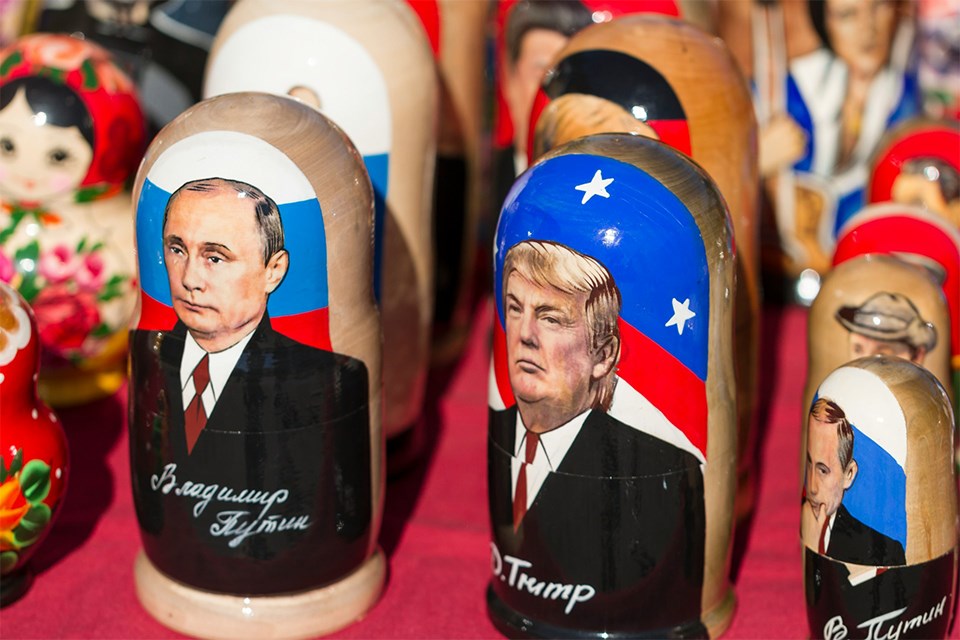Domestic and international politics heading into 2025 will largely be dominated by potentially transformative elections, economic volatility and profound uncertainty about the future prospects for global peace and prosperity.
Donald Trump’s return to the American presidency will reverberate around the world. His unpredictability, his contentious policies and his appeal to populism will be felt around the globe.
There will be bellwether elections on three continents as left-leaning governments seek re-election. In Germany, low-key but effective Olaf Scholz of the Social Democratic Party will seek a second term. The election will also test the strength of the far right; however, Scholz will probably remain in power as Germans historically grant their chancellors several terms in office.
In Australia, Anthony Albanese of the Australian Labor Party will seek a new mandate to remain in power. In Canada, Justin Trudeau, after nearly a decade in office, faces calls to step down as he heads into his fourth election. In both cases, the ruling parties face strong headwinds, leaving the outcome uncertain. Trudeau hopes to be the host when the G7 leaders meet in June in Canada.
Democracy, economy
Powerful countries such as China and Russia will continue to be ruled by long-serving and aging leaders who don’t face elections. Because of the lack of succession mechanisms in both countries, however, the illness, death or removal of the Chinese or Russian leader could easily result in instability or worse.
The recent sudden and dramatic imposition of martial law in С����Ƶ Korea illustrates how quickly political dynamics can spiral out of control. It also serves as a stark reminder of how political polarization and acrimony, along with authoritarianism, can swiftly undermine democracy — but also, how democracy can prevail as С����Ƶ Korea’s president was ultimately impeached for his actions.
For politicians, it’s not elections themselves that are difficult, but keeping the promises they made or will make on the campaign trail.
For Trump, and others such as British Prime Minister Keir Starmer, this means paying particular attention in the new year to the economy.
Economics, in fact, will play an outsized role in politics in 2025. A robust economy that generates jobs will be a salve for frustrations among the masses and burnish the standing of politicians. On the other hand, a depression or recession will escalate inequality, increase poverty and lead to calls for political action.
The International Monetary Fund predicts “stable yet underwhelming” economic growth in 2025. But even stable economic conditions generate political fallout if they don’t meet the expectations of citizens.
During the U.S. presidential election campaign, Trump benefited from many Americans feeling insecure and seeing bleaker economic prospects for themselves, even as inflation was decreasing and unemployment remained low. The same phenomenon occurred in other elections held in 2024.
Economic uncertainties
Economic dangers lurk in 2025. One worry are bubbles: exuberant beliefs and investments that prove not as bright as forecast. The current hype around artificial intelligence, which has driven the market value of Nvidia — a maker of chips for AI applications — from US$400 billion two years ago to over a staggering $3.3 trillion today, is a concern.
Cryptocurrencies are again seen as a get-rich-quick scheme, with the price of Bitcoin more than doubling in the past year. The trouble with bubbles is that when they burst, recessions or depressions often follow.
A second worry are trade wars and protectionism, the weapons in economic battles between the U.S. and countries seeking to match its economic prowess, particularly China.
Caught between the battling giants are many other countries — like Canada — that must navigate treacherous rhetorical and regulatory battles.
Although economists agree that tariffs increase the price of products and ultimately cost jobs as consumers have less purchasing power, politicians see them as ways to protect jobs in their countries and demonstrate resolve to voters.
Expect the year ahead to be full of boisterous rhetoric on trade along with many threats, including more from Trump.
Uncertainty in 2025 will also come not only from bubbles and trade wars, but also from rapidly advancing technology, such as artificial intelligence. Regulators and politicians continue to play catch-up, while the boundary between human and machine is increasingly blurred.
Global conflicts
Trump has claimed he will act to end the border battles between Ukraine and Russia and the fighting in Gaza and other parts of the Middle East.
His isolationist perspective is that the U.S. gains little from involving itself in conflicts far from home. However, stepping back and seeking peace is easier said than done.
Granting Russia influence in Ukraine will end the fighting, but will not appease western allies or some Americans. Expect Trump to act, if not always publicly, to reduce the tensions and carnage.
The leaders of North Korea, Iran and others will look for opportunities in the new year to advance their interests and to poke and prod superpowers. As always, the Middle East will remain the world’s hotspot with a confluence of authoritarianism, nationalism, religion and superpower involvement.
The fall of Syria’s dictator Bashar al-Assad to a disparate group of rebels is but the latest upheaval in the region. The removal of Assad will in no way result in a stable country, but rather will probably increase instability in the region.
The coming year is devoid of unifying global events, like an Olympics or a World Cup. That means there will be little respite from political and military turmoil and economic volatility in 2025.![]()
, Professor, School of Public Policy and Administration,
This article is republished from under a Creative Commons license. Read the .




